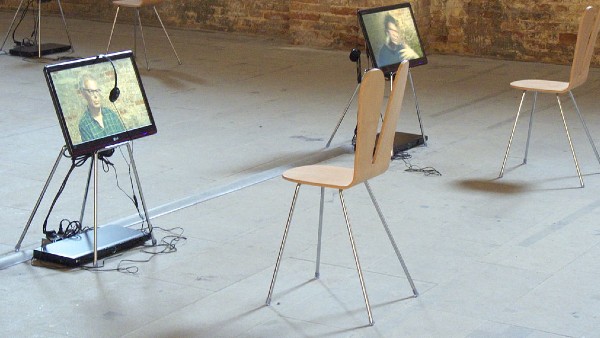Managing and Producing Art Exhibitions
Enroll before: Jul 7, 2023
Fee: 189€
Producing successful art exhibitions relies on a diverse array of project management skills and practical expertise. Effectively overseeing and coordinating crucial tasks such as budget management, logistics organization, and stakeholder collaboration are key to ensuring exhibition success and creating a meaningful experience for the audience. Whether you’re a curator, gallery owner, or aspiring museum professional, this online course will provide you with the knowledge and skills necessary to manage art exhibitions with confidence.
The course guides you through the practical steps and procedures of realizing an exhibition–from the key aspects of art exhibition management, such as project planning, budgeting, installation, team-building, logistical coordination, and promotion to the essential mediating skills needed to communicate and collaborate with artists, curators, technical staff, and administrative bodies. By learning to balance artistic goals with administrative, legal, and financial requirements, you will be able to effectively address any challenges and navigate the exhibition-making process with ease.
We will begin by exploring the most important concepts and roles that go into planning an art exhibition. From there, we’ll move on to the practical and logistical aspects of budgeting, transportation, and installation. Additionally, we’ll examine how to recognize and mitigate potential risks. As you progress through the course, you will be introduced to various documents, templates and digital tools, that will assist you in managing every stage of the exhibition-making process. Each session will draw on relevant case studies and involve workshop-style discussions to aid you in better understanding and utilising the tools presented.
By the end of the course, you will have the necessary knowledge and practical tools to skillfully oversee and manage the production of exhibitions in the art world.
Program
Week 1: Presentation.
Week 2: Introduction.
This session will introduce basic definitions and theoretical concepts included in the process of managing an exhibition. We will discuss the importance of conducting preliminary research to create a management plan that ensures the best possible results within the available budget. We will also examine the exhibition manager’s critical role as a mediator between various parties involved in the project, including institutions, artists, and others.
Week 3: Practical procedures
During the second session, we will delve into the practical procedures of exhibition management—from the initial process of planning and budgeting to managing logistics such as transport and loans. In addition the steps of setting up the exhibition, ensuring its smooth operation during the opening period, and managing the closing and de-installing process will be discussed. We will use real case study examples to illustrate each step, ranging from small-scale independent events to museum exhibitions and large-scale international exhibition settings like biennials.
Week 4: Risk Management
This session focuses on identifying potential risks and pitfalls that may impact various stages of planning and implementing an exhibition-related project. We will also cover relevant logistical tools and legal documentation to assist exhibition managers in ensuring risk mitigation, including safe transportation and storage of artwork, insurance, audience safety considerations such as space accessibility and ethical representation of groups.
Week 5: Workshop
During this concluding workshop week, we will apply the findings from previous weeks in a virtual roundtable. Using a real case scenario, we will role-play as an exhibition management team to create a thorough exhibition plan. The aim is to develop a methodology that enables a curatorial scenario to be successfully implemented into an exhibition.
Image credits:Now interviews, Hans Ulrich Obrist, Architecture Biennale

